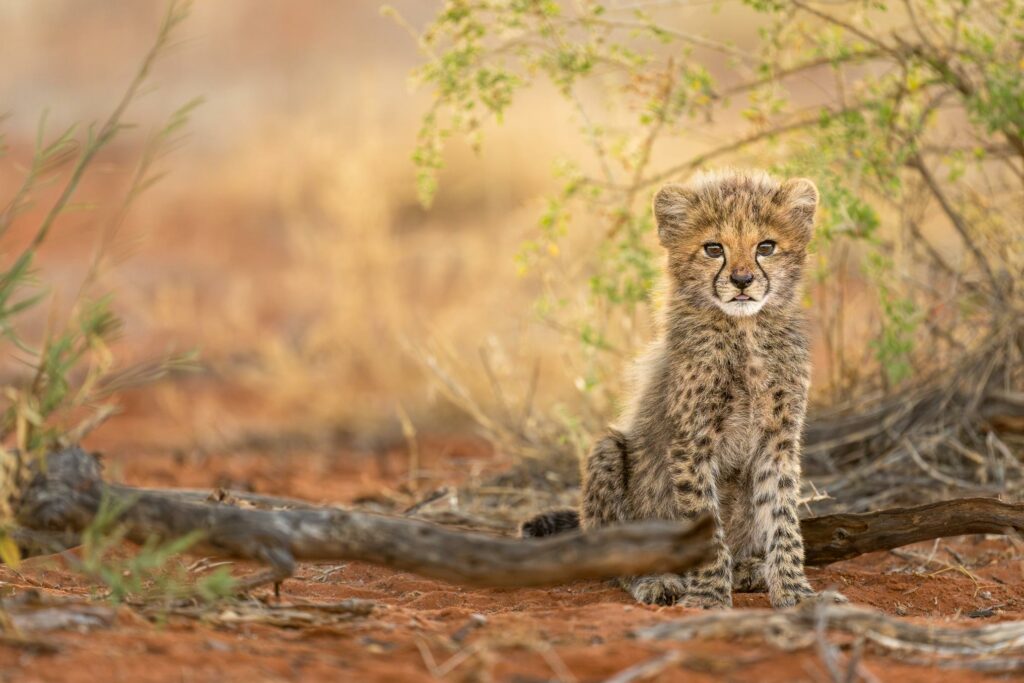WOMEN IN CONSERVATION
Tswalu employs hard-working, knowledgeable guides who are dedicated to conservation and committed to sharing the best of the southern Kalahari with their guests. Whether they are male or female is immaterial. Guests spend more time in the company of their guide than in camp, and one of Deirdre Opie’s roles as Tswalu’s new safari manager is to mentor and motivate her team to turn exceptional experiences into life-changing ones. As a highly qualified guide, tracker and guide trainer, Deirdre is an inspiration and mentor to women who want to turn their passion for conservation into a career without having to deny their femininity or become ‘one of the boys’.
Looking back, what was the most difficult aspect of your initial guide training?
I was 21 when I did my introductory six-week training course, which worked on a selection basis – at any point you could be asked to leave. After the first week, I found myself woman alone with nine guys for the remainder of the course. The hardest part was learning to use a heavy calibre rifle. I realised I had to toughen up or say goodbye to my dream of becoming a guide. To this day, learning to handle a weapon with confidence and skill often surprises the greatest sceptics.
Where do you think women may have the edge over men?
A women’s intuition to know what her guests want before they do is definitely a secret weapon. Female guides are also liberated from the macho stereotypes that still exist. It’s easier to be yourself.
What is the worst response you’ve ever had from a guest, as a woman?
‘I won’t go with her because she’s a woman’, said a CEO of a major company on his first morning on safari, many years ago. I smiled politely and set off with my other guests. The last laugh was mine, however, because on the final morning he was sitting in the front seat of my vehicle with his arms folded defensively. His colleagues – my other guests – told him that he simply had to experience my safari!

Have perceptions towards female guides evolved since then?
Twenty years ago, when I started out, women had a very hard time proving themselves to be capable. Fortunately, with more and more women qualifying and working as guides, things are much easier these days.
How does it feel to be in such a senior position as a woman?
I feel rewarded for all the extra hours of studying, tutoring, training, and mentoring others. The hard work has paid off. I also feel humbled to be a role model to others, to inspire and show young ladies that being successful in this business is absolutely possible if you put your mind to it.
What is your biggest conservation concern?
The illegal wildlife trade is decimating wildlife populations purely for man’s greed. The demand on conservation areas is ever increasing and, without local community involvement, these areas will continue to shrink. Education is key. Those that are aware of their heritage and know how to manage it responsibly will help conserve and protect what’s at stake.
Do you have a passion project?
I enjoy training and mentoring up and coming guides, especially women. I also mentor the Tracker Academy students on the reserve. As a FGASA guide trainer, I’ve watched people grow and blossom in their confidence and ability to guide. Training one of my own trackers to become a guide was a highlight. Seeing his smile in the driver’s seat for the first time was an incredibly rewarding feeling.

Images from the Tracker Academy campus at Tswalu

